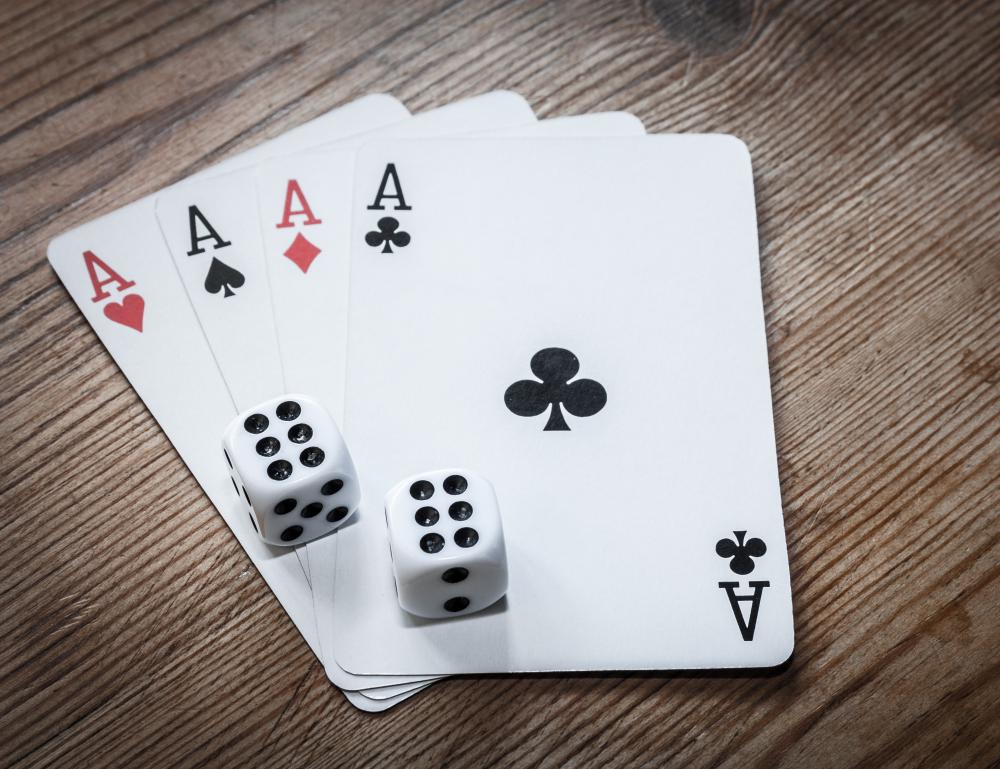At MyLawQuestions, we're committed to delivering accurate, trustworthy information. Our expert-authored content is rigorously fact-checked and sourced from credible authorities. Discover how we uphold the highest standards in providing you with reliable knowledge.
What Is a Con Game?
A con game, also referred to as a confidence trick, hustle, or scam, is the act of intentionally misrepresenting facts in an attempt to gain the trust of another person. This is usually done so that the person being conned, or the mark, will transfer money or property to the con artist. Victims of con artists come from all walks of life and are often exploited by some of the most common characteristics of human nature, such as honesty and naivete, greed, and vanity.
Although many people think of con artists as being thuggish underworld-type characters, many present themselves as either professional, trustworthy people, or likable individuals who are down on their luck. The con game that these people perform typically falls into one of two categories: the short con or the long con. Short cons are generally small operations that aim to scam the mark out of a small amount of money. Long cons are often used to scam the mark for a large sum of money or personal information that can be used to gain access to credit cards and bank accounts.

Some of the earliest confidence tricks are short cons that focus on the con artist quickly winning the trust of the mark or getting him or her involved in a gamble that the victim is certain he can win. A short con game will often consist of gambling or psychic scams, tricking a cashier into giving too much change, or convincing a person to buy a cheaply made product for more than it is worth. Some of these games also consist of the con artist presenting a fabricated tale to win the sympathy of the mark. One example of this is the con artist trying to sell magazines to raise money for a worthy cause that does not exist.

The long con game also has an extensive history. One of the most common of these scams consists of an official-looking bank notification, which tells the mark that he needs to provide personal information to help sort out a banking issue. Lottery, medical, and product-related scams are also familiar schemes. This type of con game usually offers the mark extensive wealth, good health, or a product that he will not be able to live without. Unfortunately, the mark is never given what was promised and is usually out a good deal of money.
AS FEATURED ON:
AS FEATURED ON:












Discussion Comments
@umbra21 - That seems like quite an elaborate scam but I've heard of that kind of thing before. A lot of scam artists like to target tourists because they know they have lots of money on them and probably won't understand the customs of the place.
Even locals can be fooled by someone who knows how to be a decent con artist though.
My dad told me recently that he was approached by a man in a rush who explained to him that they were towing his car for want of $20 and could he please borrow the money. Dad gave him the money and only realized afterwards that it was probably a con.
He said he was so impressed that the guy managed to play him that he deserved the money!
@browncoat - The most elaborate one I've heard of (at least among people I know) was when my sister was traveling by herself in Thailand. She got into a cab and the driver explained to her that it was a holiday and that most places would be shut, but he would bring her to this special market where all the smart tourists went. He drove her there and when she went in they had all this jewelry that they said was real but they were selling for dirt cheap prices.
My sister was totally taken in by it and bought a whole lot of pieces with her credit card. Of course, they actually weren't worth lots of money, as she had been told and it was only later that she realized she'd been scammed by the taxi driver and the market place. It wasn't even a holiday.
She got the last laugh though, because her credit card company was suspicious about this big purchase from a foreign country and they didn't put it through. So she ended up getting the jewelry for free.
There is a really fascinating history here if you are interested in this kind of thing. I've seen plenty of examples in fiction and it's made me want to read about it in non-fiction as well. Some of the con artist games that are used are just so clever, I don't know how they come up with them.
Although from what I can tell the really good games get passed on down from con artist to con artist, rather than each of them coming up with original cons.
Post your comments